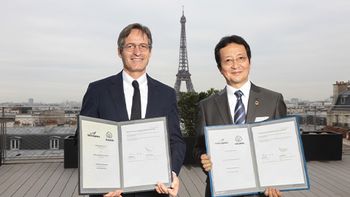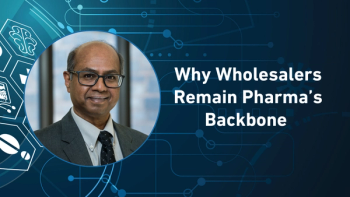
- Pharmaceutical Commerce - July/August 2014
Pharma in China--calculated risk gone wrong
Doing business in China is undergoing important changes
Many government campaigns in China appear for a brief period and then disappear. President Xi Jinping's anti-corruption campaign, however, appears to have considerable staying power. Pres. Xi made it one of his cornerstone policies when he came to power, as corruption was viewed as a threat to the Communist Party's survival amid growing public dissatisfaction. According to the Party, 180,000 party officials were punished last year for abuse of power and corruption.
However, the current sustained campaign is far more complex than just an attempt to rein in corruption. Pres. Xi is benefiting from a consolidation of power as many of his political rivals have been caught up in the campaign or are feeling the heat. Additionally, the National Development and Reform Commission became more active after Pres. Xi came to power, aggressively going after industries where it appeared that Chinese consumers were paying more for products than overseas consumers. It is in this last context that several pharmaceutical companies have found themselves caught up in the anti-corruption campaign, with authorities allegedly looking into the business practices of Novartis, AstraZeneca, Sanofi, Eli Lily, Bayer and Novo Nordisk.
In the ongoing investigation of GlaxoSmithKline, there is a continuing emphasis in the Chinese media that some of GSK's drugs were many times more expensive in China than in international markets, in addition to the allegations of corruption. The government has been going after foreign companies in a number of industries, such as foreign dairy producers and automakers for anti-competitive behavior and price fixing, and Carrefour, KFC and McDonald’s for alleged food safety issues, in an apparent bid to protect domestic companies in those industries. It appears from statements in state media that this is an underlying theme to the current investigations of foreign pharmaceutical companies in China. If a foreign company finds itself in an industry that becomes targeted in this manner, it is handing the government an easy avenue for attack if it doesn’t have a robust anti-corruption compliance program in place, especially if it is in a high risk industry such as the pharmaceutical industry.
These processes need to be robust as corruption is so pervasive in everyday life, as it is in most other developing countries. The first step is training. Employees often don’t realize what they are doing is wrong, or have the perception that it is a common and accepted practice which is in the best interests of their employer. That attitude can be seen in GSK's situation where employee representatives have been very public in their demands for GSK to reimburse salesmen for bribes they have paid on behalf of the company, going so far as to unfurl a banner in front of GSK headquarters in Shanghai that said "Return my hard-earned money."
Additionally, many employees may not know what is prohibited under their own anti-bribery laws, and in particular under foreign anti-bribery laws, such as the US Foreign Corrupt Practices Act or the UK Anti-Bribery Act. An ongoing training program is essential to educate employees as to what behavior is prohibited, along with how employees will be punished for engaging in such behavior. In order to be able to punish employees for violations, an employer needs to have an employee handbook in place which states the behavior that is prohibited under relevant anti-bribery laws, and that it has the right to terminate an employee if it discovers that he or she has violated the rule. Under Chinese law, a violation of China's anti-bribery law in and of itself will not be a legitimate ground for an employer to terminate an employee. The rule has to be clearly spelled out in the employee handbook or other internal policy document, along with a specific right of termination.
However, a training program is ineffective in and of itself if a company does not have a good process in place for monitoring employee behavior. GSK apparently had a training program in place, but sales team leaders allegedly would encourage sales employees to violate company rules and even instructed them on how to offer kickbacks. Given the alleged scale of bribes being channeled to doctors and hospitals, a properly implemented compliance monitoring system should have thrown up red flags all over the place. It's widely known that if a company wants to sell products or services to doctors and hospitals, then it is difficult to do so if bribes are not paid. Many doctors do not make a living wage and need to supplement their income. It has been a longstanding practice of many companies in the pharmaceutical and healthcare industries to engage in such practices relatively unchallenged.
My take on all this is that certain individuals within some pharmaceutical companies have taken a calculated risk that the rewards far outweighed the risks, particularly given that the practice has remained relatively unchallenged for so long. However, the tide has suddenly changed and these practices are now resulting in very serious consequences for both companies and individuals.
ABOUT THE AUTHOR
Kevin L. Jones is a partner with Faegre Baker Daniels. Based in Shanghai, he chairs the firm's labor and employment practice in China. Faegre Baker Daniels does not represent GlaxoSmithKline in China. He can be reached at [email protected].
Articles in this issue
over 11 years ago
The 2014 Sharing Conference: PDMA, Sunshine Act, OIG and Beyondover 11 years ago
US pharma layoffs do not reflect the industry's healthover 11 years ago
Happy fifth birthday for Rx-360over 11 years ago
Sonoco targets temperature-controlled pallet shippingover 11 years ago
Is a new distribution channel--'specialty lite'--emerging?over 11 years ago
Telerx to acquire C3iover 11 years ago
Veeva adds new e-detailing capabilities to its CRM platformNewsletter
Stay ahead in the life sciences industry with Pharmaceutical Commerce, the latest news, trends, and strategies in drug distribution, commercialization, and market access.




